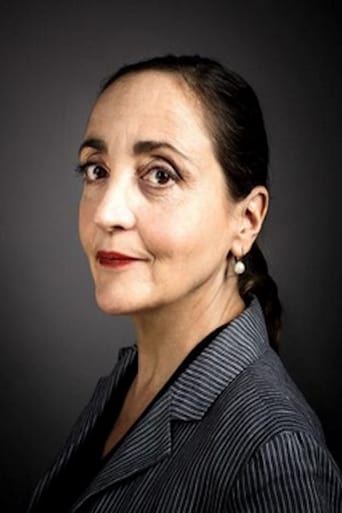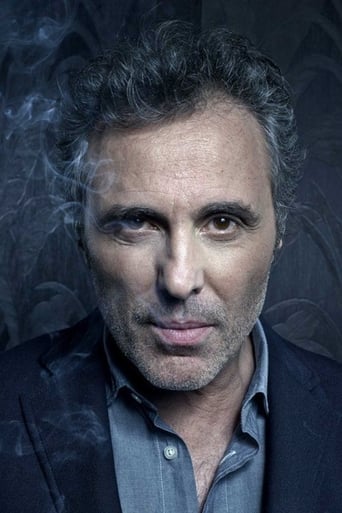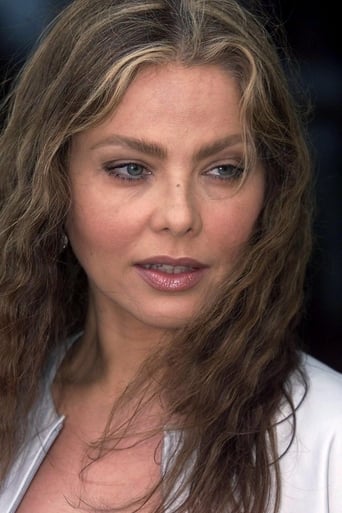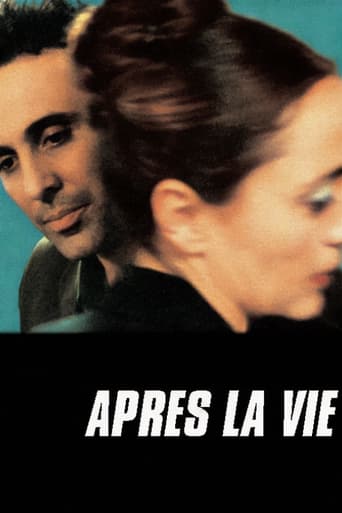
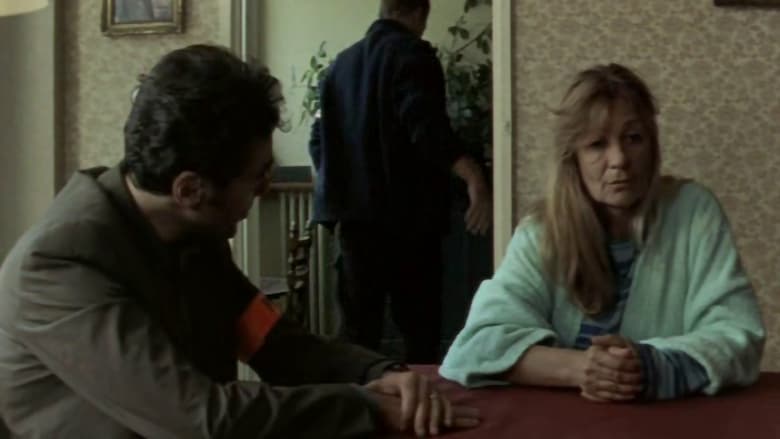
After Life (2002)
The final installment in director Lucas Belvaux's trilogy follows Pascal, a cop who sees a return to credibility in the capture of escaped convict Bruno--who in turn is harbored by Pascal's morphine-addicted wife Agnes. Pascal's already precarious ties to Agnes are strained further when he meets and falls for her fellow schoolteacher friend Cecile. With Pascal focused on Bruno and Cecile, Agnes is forced to find a fix on her own.
Watch Trailer
Cast


Reviews
People are voting emotionally.
How sad is this?
In truth, there is barely enough story here to make a film.
A great movie, one of the best of this year. There was a bit of confusion at one point in the plot, but nothing serious.
I've just seen the trilogy on successive nights on Tele-Quebec. An Amazing Couple, said to be a comedy, is painfully bad: there isn't a joke worthy of the name throughout the full two hours. On The Run is better; it's a good little thriller about a man whose obsessions lead him to join a Baader-Meinhof-type gang. Finally, After Life is a character study of a dedicated detective who unknowingly marries a drug addict, then goes around desperately trying to score drugs for her.Here the actors finally come into their own. Dominique Blanc gives one of the best portrayals of somebody in the grip of addiction that I have seen. Her drug behavior is integrated into her personality in a very convincing way, not just sketched in. The overdose scene is powerful. Her marriage and her role as teacher are suffering from her habit, and she'll have to make a choice. Gilbert Melki shows the tenderness in his cop character; you can believe he'd wreck his career for his wife.
Lucas Belvaux's trilogy of films is meant to be taken as one multi-faceted unit, and is best viewed as such. The first (as I saw them), "On the Run," was a `thriller,' with Lucas Belvaux as a terrorist escaped from prison to settle scores and look up an old flame (Catherine Frot). In that film, there were the first glimpses of events in the romantic comedy, "An Amazing Couple." The trilogy ties up with this character study (or `melodrama'), "After the Life" ("Après la vie"), about the relationship between a pathetic and suffering drug-addicted teacher (Dominique Blanc) and her down on his luck and co-dependent cop husband (Gilbert Melki). The thriller was hobbled a bit by it's involvement with the other interwoven stories, but the romantic comedy and `melodrama' work fine as stand alones, and are even enriched by the angles explored and explained by the other films. All three should be seen together. Or, as a friend of mine has supposed, maybe I should just rent Kieslowski's `Three Colors' trilogy instead ?
"On the Run (Cavale)" is the first third of an engrossing experiment in story telling that crosses "Rashomon" with a television miniseries to show us an ensemble of intersecting characters over a couple of days to gradually reveal the complicated truth about each. Writer/director Lucas Belvaux uses a clever technique to communicate just how differently the characters perceive the same situations-- they are literally in different movies and, a la "Rules of the Game," everyone has their reasons. "On the Run"is a tense, fast-paced escaped con on-the-run Raoul Walsh-feeling film, with the auteur himself playing a Humphrey Bogart-type who can be cruel or kind; "An Amazing Couple (Un couple épatant)" is an Ernest Lubitch-inspired laugh-out-loud comedy of mistaken communication; and "After the Life (Après la vie)" is a Sidney Lumet-feeling gritty, conflicted cop melodrama with seamy and tender moments. "Time Code" experimented turning the two-dimensions of film into three with multiple digital video screens. This trilogy is more effective in showing us what happens as characters leave the frame. Belvaux goes beyond the techniques used in the cancelled TV series "Boomtown" or the films of Alejandro González Iñárritu in "Amores Perros" and "21 Grams" with their stream-of-consciousness flashbacks character by character.I don't see how I can deal with each film separately. Theoretically, one can see the three movies alone or independently out of order, but that would be like watching one episode of a series like "The Wire" or "The Sopranos" and wondering what the big deal is. Only a handful of patrons in my theater joined me in a one-day triple-feature; I guess the others have a better memory than I do that they could see each film on separate days, though a marathon does inevitably lead to some mind-wandering that could miss important clues and revelations so this is ideal for a triple-packed DVD. On DVD we'll be able to replay the excellent acting to see if in fact the actors do shade their performances differently when particular scenes are enacted from different characters' viewpoints -- are these takes from the same staging or not? How is each subtly different that we get a different impression each time? Or are we bringing our increasing knowledge (and constantly changing sympathies) about each character to our impressions of the repeating scenes? One reason this conceit works is because of the unifying theme of obsession - each character is so completely single-minded in their focus on one issue that they are blind to what else is happening even as they evolve to find catharsis. One is literally a heroin addict, but each has their psychological addiction (revenge, co-dependence, hypochondria, jealousy). The slow revelation technique also works because of the parallel theme of aging and acceptance of the consequences of their actions, as some can face how they have changed and some can't change. You need to see all three films to learn about each character's past and conclusion, as secondary characters in one film are thrust to the fore in another in explaining a key piece of motivation. The only place they really interchange is in an ironically, meaningless political debate at the public high school they each have some tie to.
Après la vie is a part of a very interesting cinematographic experiment. The other parts are two other films made by Lucas Belvaux: Un couple épatant and Cavale. The three films are set in the same city (Grenoble in the French Alps) during the same period of time and share the same roles. The point is, in each of the three movies the focus is on different people. The leading actors in one movie are the supporting actors in another one, and vice versa. Some scenes in the movies are exactly the same, some are the same but filmed from a different viewpoint, and most scenes are unique to one of the three movies. Belvaux has chosen three different genres: a comedy (Un couple épatant), a drama (Après la vie) and a thriller (Cavale).So far, so good. The experiment works: after seeing all three of the films, a fourth imaginary film emerges in which all the different pieces of the puzzle come together. There is only one little problem: not all three films are good. The comedy is not very funny, the thriller is not very thrilling, and only the drama is in a way dramatic. I found Après la vie (about a cop who has to become corrupt because he needs dope for his drug-addicted wife) by far the best one out of the three. But perhaps this is because I saw this movie after the other two and knew the story already more or less. Cavale was the first one I saw and, to be honest, I had trouble understanding everything that happened (although a friend I saw the movie with had no trouble at all). But perhaps this is an inevitable consequence of the experiment. So if you want to enjoy an unusual experiment, go see all three movies. If you think that takes too much time and costs too much money, go see Après la vie - a decent drama - and forget about the other two. Unless you want to admire the breathtaking beauty of Ornella Muti: then Un couple épatant is your best choice because she has a leading role in this movie.


